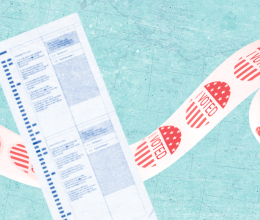FACTS:
Beginning in early February 2021, ACLU of Ohio Policy Strategist Collin Marozzi delivered public records requests to several Ohio public officials and bodies, including the governor, the Secretary of State, Republican and Democratic leaders, and functionaries in the Ohio General Assembly, to obtain information about work that these individuals and organizations were doing behind the scenes in connection with congressional and state legislative redistricting. The requests sought information about the formation of the Redistricting Commission, preliminary work of the commission, the population and geographic data being assembled, the identity of vendors who were already or would be processing mapmaking data, the purchase of mapmaking software, communication with mapmaking and data consultants, and related matters. The recipients of the requests included 10 individuals who are members of the Ohio House of Representatives or their key staff.
For over five months, the three highest level officials and staffers in the Ohio House – House Speaker Robert Cupp, his chief of staff Christine Morrison, and Majority Floor Leader Bill Seitz – failed to produce a single document. Two others – mapmaker Heather Blessing and Speaker Cupp’s Deputy Chief of Staff Sheila Boehner – interposed objections to the requests, but refused to provide any basis for them as required by the Ohio Public Records Act.
LEGAL THEORY:
In Ohio’s last redistricting, in 2010, our public officials drew Ohio’s congressional and state legislative maps in secrecy, redrawing district lines in a hotel room that they dubbed “the bunker.” Due to constitutional amendments overwhelmingly approved by Ohio voters in 2015 and 2018, the process this decennial is expressly required to be open and transparent. Although the public is entitled to see the records that we requested, public officials responsible for providing these records shirked their duty to comply with requests and refused even to negotiate regarding the parameters of our requests and their responses. The only remaining avenue to obtain this information was to initiate litigation authorized under the Ohio Public Records Act to compel their production.
STATUS:
On July 6, we filed a mandamus lawsuit in the Ohio Supreme Court asking the Court to order the respondents to comply with Ohio Public Records Act and produce the requested documents. On July 14, the Court referred the matter to mediation. Mediation sessions were conducted on August 5, August 11, and August 18. The parties were able to partially resolve their dispute, but other issues remained. On September 3, the Parties filed an Application for Partial Dismissal of Case and Notice of Partial Failure of Settlement, which was granted on September 20. We issued additional public records requests to Respondents. These additional requests were met with resistance and on September 22 we filed a motion to amend our complaint to include these additional issues. Respondents filed their Answer on October 12. The Court granted our writ on November 10, setting a briefing schedule and ordering Respondents to submit the withheld records for in camera inspection. On November 30, Respondents submitted these records to the Court. The two redistricting lawsuits below progressed too quickly for any records that might be obtained in this action even if ultimately successful, to be produced in time. And so on December 2, we filed an Application for Dismissal without Prejudice. The case was dismissed on December 6, 2021.





